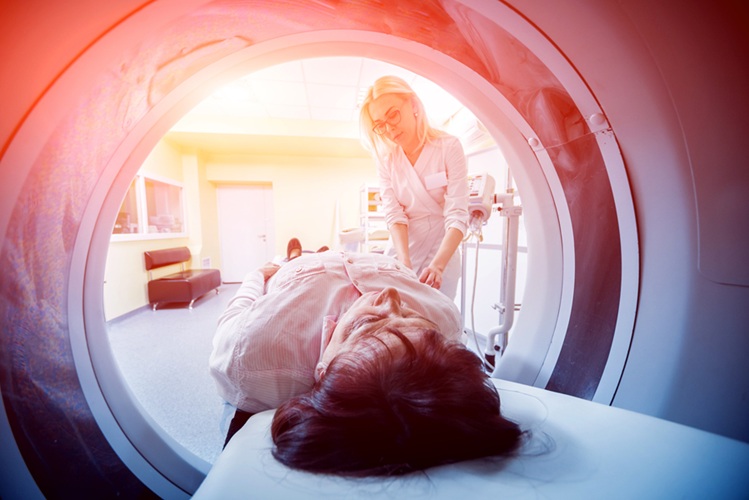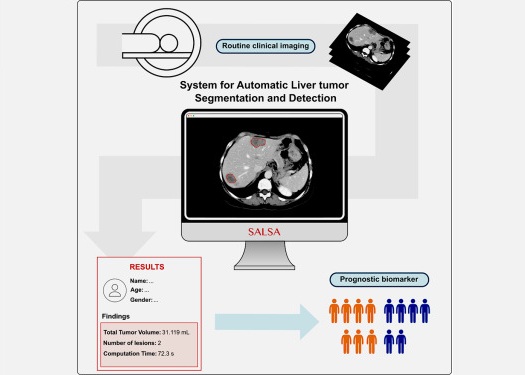Global Partnership Provides Treatment Planning Support for Modulated Arc Radiotherapy
|
By MedImaging International staff writers Posted on 22 Sep 2014 |
Varian Medical Systems (Palo Alto, CA, USA) Eclipse treatment planning software can now be used to plan modulated arc radiotherapy (mARC) treatments at sites using Siemens Healthcare (Erlangen, Germany) medical linear accelerators.
Varian Medical Systems and Siemens Healthcare presented their range of solutions that integrate Siemens’ diagnostic imaging technologies with Varian’s therapeutic systems for treating cancer with image-guided radiotherapy, radiosurgery, proton therapy, and brachytherapy at the 55th annual meeting of the American Society for Radiation Oncology (ASTRO), held in San Francisco (CA, USA), in September 2014.
As part of their global strategic partnership, the two companies presented new capabilities within Varian’s Eclipse treatment planning software that can now enable delivery of mARC treatments using Siemens existing medical linear accelerators. mARC radiotherapy is Siemens’ approach to volumetric-modulated arc therapy (VMAT), a highly efficient way to deliver a precisely-sculpted dose to a targeted tumor.
“Over the years of our partnership, Varian and Siemens have worked to create seamless connectivity between our two companies’ solutions,” said Kolleen Kennedy, president of Varian’s oncology systems business. “This development marks an important new milestone in our mutual cooperation, and demonstrates our commitment to the community of Siemens technology users.”
The two companies, in previous years of the partnership, focused on creating Varian Exchange, an interface that makes it possible to use Varian’s ARIA oncology information system in treatment centers using Siemens linear accelerators. This interface has now been successfully deployed in 11 treatment centers in the United States and worldwide, and is slated to be installed in 16 more. Kiel University Hospital (Germany) was the first site in the world to use this interface to connect the ARIA system from Varian to Siemens Artiste accelerators.
“Prior to our having this connectivity, Digital Imaging and Communications in Medicine [DICOM)]-based export of information between systems was slow and there were clinical restrictions that resulted,” said chief medical physicist Dr. Frank-André Siebert, PhD. “The whole patient workflow was hard to follow and every minor change needed a completely new treatment plan, which was very time-consuming.”
Dr. Siebert noted that the workflow is much more streamlined with Eclipse and ARIA fully connected to the treatment machines. “It’s much easier and faster to work with just one software system rather than two,” he said. “Two systems need more care than one and are more expensive to service.”
Related Links:
Varian Medical Systems
Siemens Healthcare
Varian Medical Systems and Siemens Healthcare presented their range of solutions that integrate Siemens’ diagnostic imaging technologies with Varian’s therapeutic systems for treating cancer with image-guided radiotherapy, radiosurgery, proton therapy, and brachytherapy at the 55th annual meeting of the American Society for Radiation Oncology (ASTRO), held in San Francisco (CA, USA), in September 2014.
As part of their global strategic partnership, the two companies presented new capabilities within Varian’s Eclipse treatment planning software that can now enable delivery of mARC treatments using Siemens existing medical linear accelerators. mARC radiotherapy is Siemens’ approach to volumetric-modulated arc therapy (VMAT), a highly efficient way to deliver a precisely-sculpted dose to a targeted tumor.
“Over the years of our partnership, Varian and Siemens have worked to create seamless connectivity between our two companies’ solutions,” said Kolleen Kennedy, president of Varian’s oncology systems business. “This development marks an important new milestone in our mutual cooperation, and demonstrates our commitment to the community of Siemens technology users.”
The two companies, in previous years of the partnership, focused on creating Varian Exchange, an interface that makes it possible to use Varian’s ARIA oncology information system in treatment centers using Siemens linear accelerators. This interface has now been successfully deployed in 11 treatment centers in the United States and worldwide, and is slated to be installed in 16 more. Kiel University Hospital (Germany) was the first site in the world to use this interface to connect the ARIA system from Varian to Siemens Artiste accelerators.
“Prior to our having this connectivity, Digital Imaging and Communications in Medicine [DICOM)]-based export of information between systems was slow and there were clinical restrictions that resulted,” said chief medical physicist Dr. Frank-André Siebert, PhD. “The whole patient workflow was hard to follow and every minor change needed a completely new treatment plan, which was very time-consuming.”
Dr. Siebert noted that the workflow is much more streamlined with Eclipse and ARIA fully connected to the treatment machines. “It’s much easier and faster to work with just one software system rather than two,” he said. “Two systems need more care than one and are more expensive to service.”
Related Links:
Varian Medical Systems
Siemens Healthcare
Latest Nuclear Medicine News
- Novel Radiolabeled Antibody Improves Diagnosis and Treatment of Solid Tumors
- Novel PET Imaging Approach Offers Never-Before-Seen View of Neuroinflammation
- Novel Radiotracer Identifies Biomarker for Triple-Negative Breast Cancer
- Innovative PET Imaging Technique to Help Diagnose Neurodegeneration
- New Molecular Imaging Test to Improve Lung Cancer Diagnosis
- Novel PET Technique Visualizes Spinal Cord Injuries to Predict Recovery
- Next-Gen Tau Radiotracers Outperform FDA-Approved Imaging Agents in Detecting Alzheimer’s
- Breakthrough Method Detects Inflammation in Body Using PET Imaging
- Advanced Imaging Reveals Hidden Metastases in High-Risk Prostate Cancer Patients
- Combining Advanced Imaging Technologies Offers Breakthrough in Glioblastoma Treatment
- New Molecular Imaging Agent Accurately Identifies Crucial Cancer Biomarker
- New Scans Light Up Aggressive Tumors for Better Treatment
- AI Stroke Brain Scan Readings Twice as Accurate as Current Method
- AI Analysis of PET/CT Images Predicts Side Effects of Immunotherapy in Lung Cancer
- New Imaging Agent to Drive Step-Change for Brain Cancer Imaging
- Portable PET Scanner to Detect Earliest Stages of Alzheimer’s Disease
Channels
Radiography
view channel
AI Improves Early Detection of Interval Breast Cancers
Interval breast cancers, which occur between routine screenings, are easier to treat when detected earlier. Early detection can reduce the need for aggressive treatments and improve the chances of better outcomes.... Read more
World's Largest Class Single Crystal Diamond Radiation Detector Opens New Possibilities for Diagnostic Imaging
Diamonds possess ideal physical properties for radiation detection, such as exceptional thermal and chemical stability along with a quick response time. Made of carbon with an atomic number of six, diamonds... Read moreMRI
view channel
Cutting-Edge MRI Technology to Revolutionize Diagnosis of Common Heart Problem
Aortic stenosis is a common and potentially life-threatening heart condition. It occurs when the aortic valve, which regulates blood flow from the heart to the rest of the body, becomes stiff and narrow.... Read more
New MRI Technique Reveals True Heart Age to Prevent Attacks and Strokes
Heart disease remains one of the leading causes of death worldwide. Individuals with conditions such as diabetes or obesity often experience accelerated aging of their hearts, sometimes by decades.... Read more
AI Tool Predicts Relapse of Pediatric Brain Cancer from Brain MRI Scans
Many pediatric gliomas are treatable with surgery alone, but relapses can be catastrophic. Predicting which patients are at risk for recurrence remains challenging, leading to frequent follow-ups with... Read more
AI Tool Tracks Effectiveness of Multiple Sclerosis Treatments Using Brain MRI Scans
Multiple sclerosis (MS) is a condition in which the immune system attacks the brain and spinal cord, leading to impairments in movement, sensation, and cognition. Magnetic Resonance Imaging (MRI) markers... Read moreUltrasound
view channel.jpeg)
AI-Powered Lung Ultrasound Outperforms Human Experts in Tuberculosis Diagnosis
Despite global declines in tuberculosis (TB) rates in previous years, the incidence of TB rose by 4.6% from 2020 to 2023. Early screening and rapid diagnosis are essential elements of the World Health... Read more
AI Identifies Heart Valve Disease from Common Imaging Test
Tricuspid regurgitation is a condition where the heart's tricuspid valve does not close completely during contraction, leading to backward blood flow, which can result in heart failure. A new artificial... Read moreNuclear Medicine
view channel
Novel Radiolabeled Antibody Improves Diagnosis and Treatment of Solid Tumors
Interleukin-13 receptor α-2 (IL13Rα2) is a cell surface receptor commonly found in solid tumors such as glioblastoma, melanoma, and breast cancer. It is minimally expressed in normal tissues, making it... Read more
Novel PET Imaging Approach Offers Never-Before-Seen View of Neuroinflammation
COX-2, an enzyme that plays a key role in brain inflammation, can be significantly upregulated by inflammatory stimuli and neuroexcitation. Researchers suggest that COX-2 density in the brain could serve... Read moreGeneral/Advanced Imaging
view channel
CT-Based Deep Learning-Driven Tool to Enhance Liver Cancer Diagnosis
Medical imaging, such as computed tomography (CT) scans, plays a crucial role in oncology, offering essential data for cancer detection, treatment planning, and monitoring of response to therapies.... Read more
AI-Powered Imaging System Improves Lung Cancer Diagnosis
Given the need to detect lung cancer at earlier stages, there is an increasing need for a definitive diagnostic pathway for patients with suspicious pulmonary nodules. However, obtaining tissue samples... Read moreImaging IT
view channel
New Google Cloud Medical Imaging Suite Makes Imaging Healthcare Data More Accessible
Medical imaging is a critical tool used to diagnose patients, and there are billions of medical images scanned globally each year. Imaging data accounts for about 90% of all healthcare data1 and, until... Read more





















